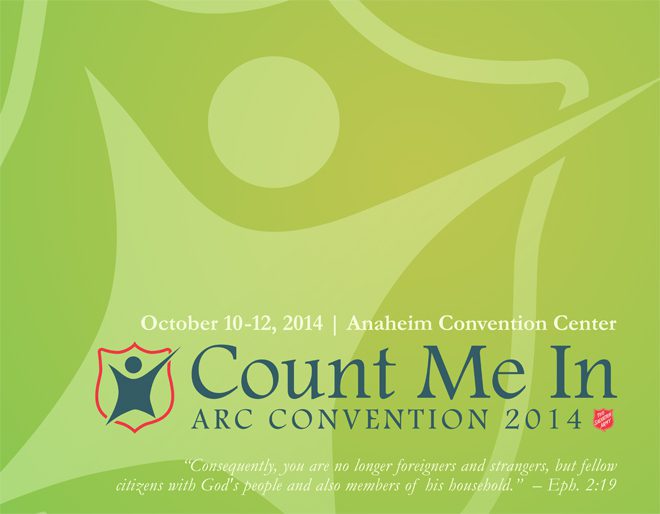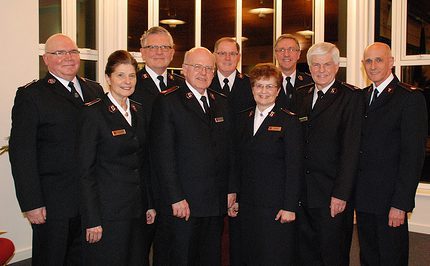Listen to this article
Listen to this article
Loading
Play
Pause
Options
0:00
-:--
1x
Playback Speed- 0.5
- 0.6
- 0.7
- 0.8
- 0.9
- 1
- 1.1
- 1.2
- 1.3
- 1.5
- 2
Audio Language
- English
- French
- German
- Italian
- Spanish
Open text
complex: yes—complicated: no. from the desk of…. by kurt burger, lt. colonel –. as far as i know, nobody has ever written about complexity in this column, although the word has become a well-entrenched staple in the army’s vocabulary. well, here it is…. the other day, i was waiting in an airport for my flight when an elderly lady came up to me and said: “it’s good to see a salvation army uniform—it’s so seldom i get to see one.” we started talking about what the salvation army is doing today, and she closed the conversation with a statement that really caught my attention. “everything has become so complex,” she mused looking at the tv monitor in the boarding area. she is right. she is wrong. if “everything is complicated” is meant as hindrance to ministry she is right; if it is viewed as opportunities for ministry, she is wrong. complex, or complicated, as adjective, or complexity as noun, is defined as “hard to separate, analyze, explain or solve.” doesn’t sound new to me—my twin brother and i ran up against this as kids, facing the disapproving looks of teacher and parents for our inability “to get it” (read: not interested). we all hear the “things-have-gotten-so-complex complaint” a lot, without fully understanding what is meant. to some people, computers are complex. to my granddaughter, they are a source of fun and information. (grandpa, you really didn’t have computers when you grew up? how can this be?) some people use the statement as an excuse: poor me, i just can’t keep up. others use it to camouflage an area they are not interested in, or don’t want to spend the time on. to others, it simply sounds good and gives them a boost: i am a modern 21st century person, living in a sophisticated society. whatever you say often enough and long enough, you eventually begin to believe—strongly believe. i would argue that unless the “things-have-gotten-so-complex” statement is meant in a positive way, it becomes part of an excuse culture, not a performance and growth culture. true, this is a broad statement, subject to interpretations and exceptions. however, since i prefer to be generally right rather than precisely wrong, allow me to stick to my assertion and try to support it. the “woe unto me, all this complexity” complaint is primarily uttered when we talk business issues. the inference is that if it weren’t for business, life would be simpler. perhaps. to make this area the sole culprit, however, is missing the mark. true complexity started immediately after the abrupt and unplanned departure from the garden of eden. understanding people—dealing with people issues—has always been and always will be the most complex area of our ministry. it has become part of ministry life (a long time ago) that we cannot preach the gospel without complicated business systems. preaching the gospel without business results in poor stewardship, negating the testimony of the servants who strive to preach it through word and deed. and doing business without preaching the gospel denies our very calling. complexity forces us to learn, reach out to others for help, become team players and team leaders. this applies to business and all other areas of ministry. preparing a sermon, explaining a difficult scripture passage, wrestling with the mysteries of life, are as complex as anything—officers and soldiers of the army have done so since its inception. again, complexity is nothing new. be that as it may, in the final analysis, the person, character, integrity are once again the more important variables. we may understand complex systems, but if we lack the basic human and spiritual qualities, becoming ineffective and irrelevant is a given. a few weeks ago, the los angeles unified school district selected a new superintendent. vice admiral david l. brewer iii has no background in running a large school district. he has been a soldier for all of his career. so why did they pick him? “as head of the sealift command, he was chief executive of a $3.1 billion enterprise and managed a fleet of 120 ships worldwide.” (los angeles times, october 14, 2006). the times article continued: “all of that likely impressed the school board members who chose him, but what really stood out were his ‘warmth, humanness and passion,’ board president marlene canter said. ‘the thing that blew us away, that i was looking for, this man is a convener, a collaborator….’”. the point: complexity is not a hindrance; if anything, it’s a positive. however, lack of passion for ministry, feeling no burden for the lost and hurting, lacking warmth and empathy will guarantee failure. let’s concentrate our discussions more on these things, less on complicated systems. these issues are more complex than the most complex business system.
Open context player
Close context player
Plays:-Audio plays count
complex: yes—complicated: no. from the desk of…. by kurt burger, lt. colonel –. as far as i know, nobody has ever written about complexity in this column, although the word has become a well-entrenched staple in the army’s vocabulary. well, here it is…. the other day, i was waiting in an airport for my flight when an elderly lady came up to me and said: “it’s good to see a salvation army uniform—it’s so seldom i get to see one.” we started talking about what the salvation army is doing today, and she closed the conversation with a statement that really caught my attention. “everything has become so complex,” she mused looking at the tv monitor in the boarding area. she is right. she is wrong. if “everything is complicated” is meant as hindrance to ministry she is right; if it is viewed as opportunities for ministry, she is wrong. complex, or complicated, as adjective, or complexity as noun, is defined as “hard to separate, analyze, explain or solve.” doesn’t sound new to me—my twin brother and i ran up against this as kids, facing the disapproving looks of teacher and parents for our inability “to get it” (read: not interested). we all hear the “things-have-gotten-so-complex complaint” a lot, without fully understanding what is meant. to some people, computers are complex. to my granddaughter, they are a source of fun and information. (grandpa, you really didn’t have computers when you grew up? how can this be?) some people use the statement as an excuse: poor me, i just can’t keep up. others use it to camouflage an area they are not interested in, or don’t want to spend the time on. to others, it simply sounds good and gives them a boost: i am a modern 21st century person, living in a sophisticated society. whatever you say often enough and long enough, you eventually begin to believe—strongly believe. i would argue that unless the “things-have-gotten-so-complex” statement is meant in a positive way, it becomes part of an excuse culture, not a performance and growth culture. true, this is a broad statement, subject to interpretations and exceptions. however, since i prefer to be generally right rather than precisely wrong, allow me to stick to my assertion and try to support it. the “woe unto me, all this complexity” complaint is primarily uttered when we talk business issues. the inference is that if it weren’t for business, life would be simpler. perhaps. to make this area the sole culprit, however, is missing the mark. true complexity started immediately after the abrupt and unplanned departure from the garden of eden. understanding people—dealing with people issues—has always been and always will be the most complex area of our ministry. it has become part of ministry life (a long time ago) that we cannot preach the gospel without complicated business systems. preaching the gospel without business results in poor stewardship, negating the testimony of the servants who strive to preach it through word and deed. and doing business without preaching the gospel denies our very calling. complexity forces us to learn, reach out to others for help, become team players and team leaders. this applies to business and all other areas of ministry. preparing a sermon, explaining a difficult scripture passage, wrestling with the mysteries of life, are as complex as anything—officers and soldiers of the army have done so since its inception. again, complexity is nothing new. be that as it may, in the final analysis, the person, character, integrity are once again the more important variables. we may understand complex systems, but if we lack the basic human and spiritual qualities, becoming ineffective and irrelevant is a given. a few weeks ago, the los angeles unified school district selected a new superintendent. vice admiral david l. brewer iii has no background in running a large school district. he has been a soldier for all of his career. so why did they pick him? “as head of the sealift command, he was chief executive of a $3.1 billion enterprise and managed a fleet of 120 ships worldwide.” (los angeles times, october 14, 2006). the times article continued: “all of that likely impressed the school board members who chose him, but what really stood out were his ‘warmth, humanness and passion,’ board president marlene canter said. ‘the thing that blew us away, that i was looking for, this man is a convener, a collaborator….’”. the point: complexity is not a hindrance; if anything, it’s a positive. however, lack of passion for ministry, feeling no burden for the lost and hurting, lacking warmth and empathy will guarantee failure. let’s concentrate our discussions more on these things, less on complicated systems. these issues are more complex than the most complex business system.
Listen to this article











 As far as I know, nobody has ever written about complexity in this column, although the word has become a well-entrenched staple in the Army’s vocabulary. Well, here it is…
As far as I know, nobody has ever written about complexity in this column, although the word has become a well-entrenched staple in the Army’s vocabulary. Well, here it is…
